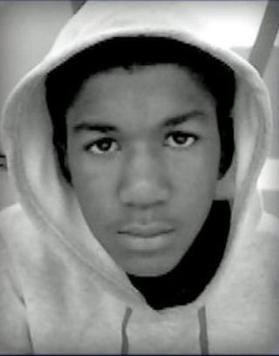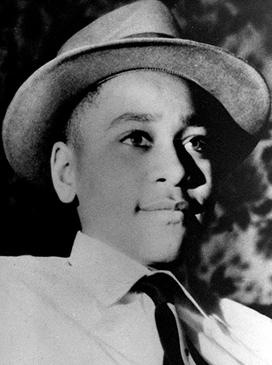America’s attitude towards racism has evolved extensively
throughout its history. Although an obvious presence of racial bigotry has
faded within American culture, a more complacent reliance on stereotyping still
survives today. Similarities between crimes committed against African-Americans
of pre-integrated times and those of the present are easily observed in terms
of motivation and verdict. The post-mortem photographs of Emmett Till and
Trayvon Martin tragically prove that racism has taken the lives of Black youth
throughout our history and will continue to do so until a united front is
formed against prejudice and racial profiling.
Our story as a group begins as individuals, who particularly
want the American youth to question what they perceive as their reality and how
they would like to create their future. Will it be a future of continued racial
tension and violence or will it be a future where everyone is seen as more than
the amount of melanin their DNA contains? Throughout our lives we have grown
up studying slavery and the Civil Rights Era. We’ve seen that racial profiling
and discrimination still exist today through the more recent shootings of
Trayvon Martin and Michael Brown. We
chose to analyze the photographs of Emmett Till and Trayvon Martin in our blog,
because although there is little overt racism in America, it still lurks in the
fabric of American culture.
We began our blog by establishing a time sequence based on
what the viewer perceived first while looking at the photos. The initial reaction
of the viewer to the photos was one of shock, hence our decision to begin with
pathos. A closely related rhetorical appeal was Kairos, which established why
the images are relevant to the viewer today. Logos came next. After moving our
reader with the initial shock value of the photographs, the reader next
questions how could this have logically occurred. Appeals to Logos, along with
Pathos, can account for why this image moved millions of people of all races to
rally for racial equality. Style quickly followed because we wanted the reader
to see past the photographs, and provide the boys with a concrete identity.
After the viewer’s analysis of pathos, kairos, and logos, they can form an
opinion of what these two pictures are actually about. They have been provided
with enough information to form a valid opinion, leading them to unconsciously
consider the stases. Our blog concluded by analyzing both photo’s appeal to
ethos. After thoroughly observing the image the viewer now questions its
credibility. That being established, the viewer has formed a concrete and
credited opinion on the message of the photographs.
These photos are relevant to people in modern day America,
who may have assumed racism is no longer a major issue in our culture. Although
the death of Trayvon Martin occurred two years ago, the death of Michael Brown
occurred only a few months ago, stressing this need to continue conversation on
the value of Black youth. Though conversations about racial violence occur
after a tragedy, nothing is done to stop these events from happening in the
first place. Inevitably the discussion dies down and we wait for another murder
to occur before stirring fruitless conversation once more. We expect
readers to pause and reflect on their own lives and how they, as individuals,
can perpetuate the discussion of racism in America.
Our blog, ‘A Picture of Injustice’, aims to show the
recurring theme of both Emmett Till and Trayvon Martin being victimized
children. They were perceived as a menace to society because of the stereotypes
and accepted ignorance of the times. Although, people may not wish to accept
this reality, it is true that anyone can be a victim of prejudice and racism.
You can be Trayvon. Your child can be Emmett. The effect of racism is a disease
that no one is immune to.
The post-mortem photographs of the two boys claim that the
issues that the Civil Rights Movement sought to solve haven’t been eradicated
at the root. The images are a call to action. They command the reader to
examine how these murders could have occurred, and what must be done to prevent
their reoccurrence. Our blog argues that racism
spans through time, and is a current issue in America. Discussion of racism has
been swept to the side for far too long, and only erupts momentarily, after a
tragedy occurs. Soon afterwards, the American people push aside their
grievances, and settle back on their complacent attitudes.
American citizens in the present day have access to
unlimited channels of information. They need to be aware of current events and
take more action against injustice than just “liking” an article on facebook.
These posts and images are important because they show the necessity of ending
racism at the root. As much as people would like to believe that racism has ended,
Trayvon Martin’s murder proves that we are still living in an America where
racism is socially acceptable. The 1960’s spirit of protest needs to be revived
in order for America to become a nation, where every person is judged not by
the “color of their skin, but by the content of
their character”.











